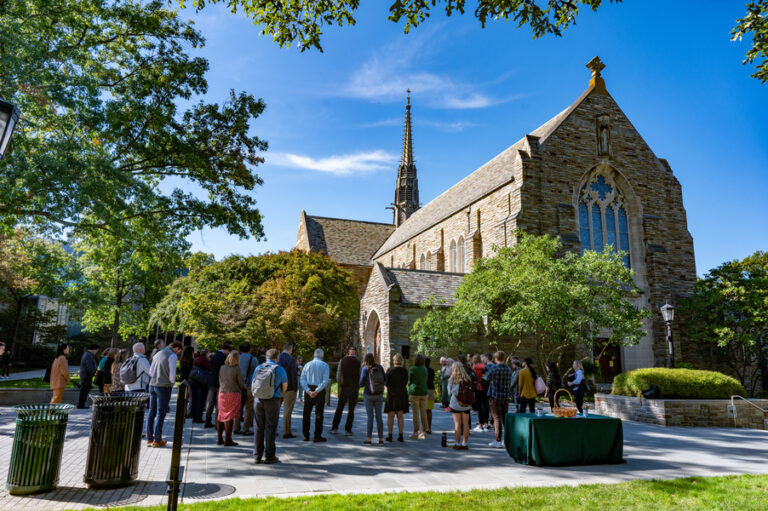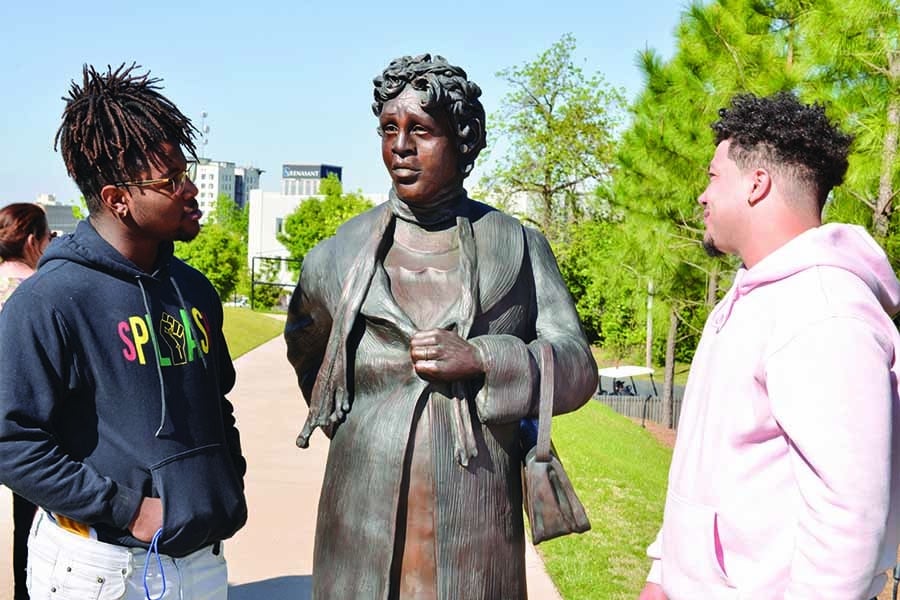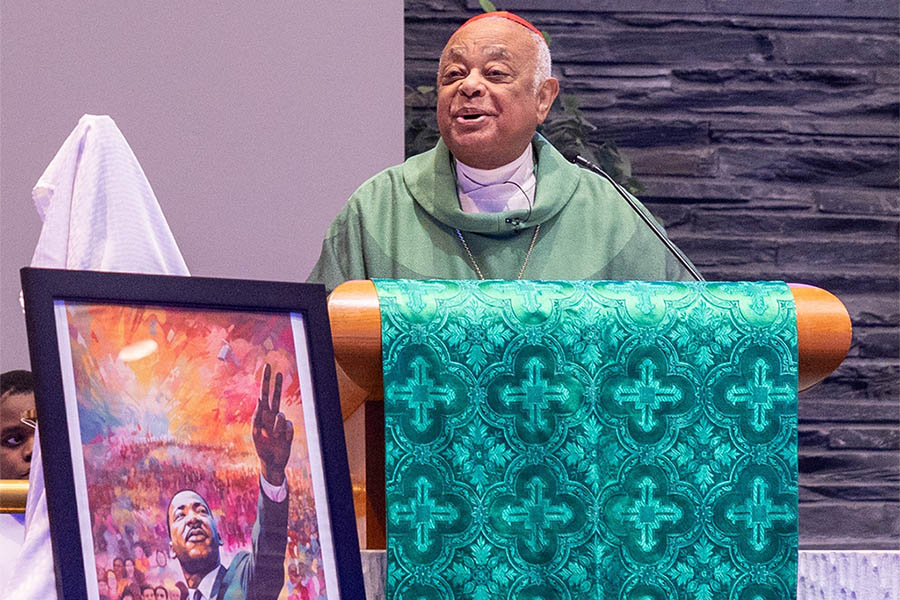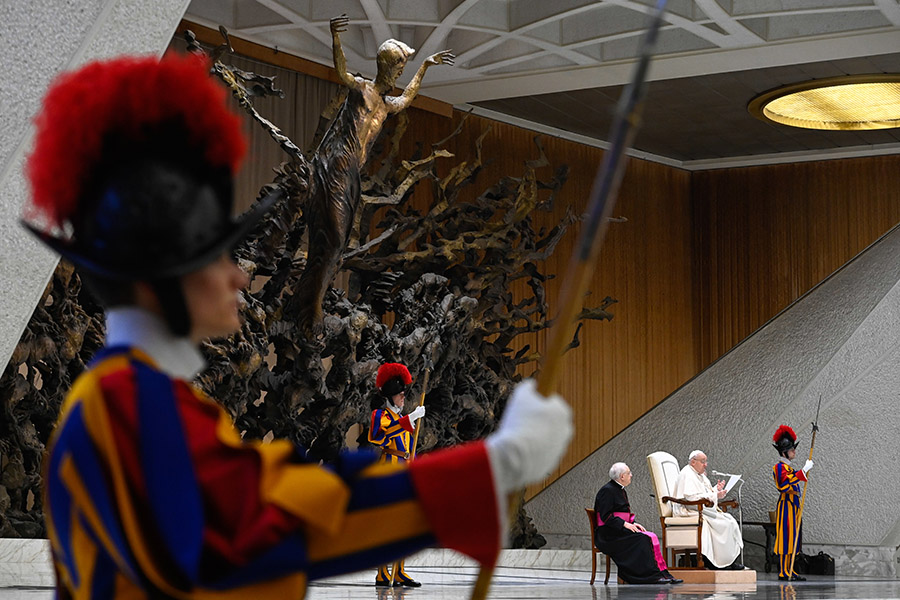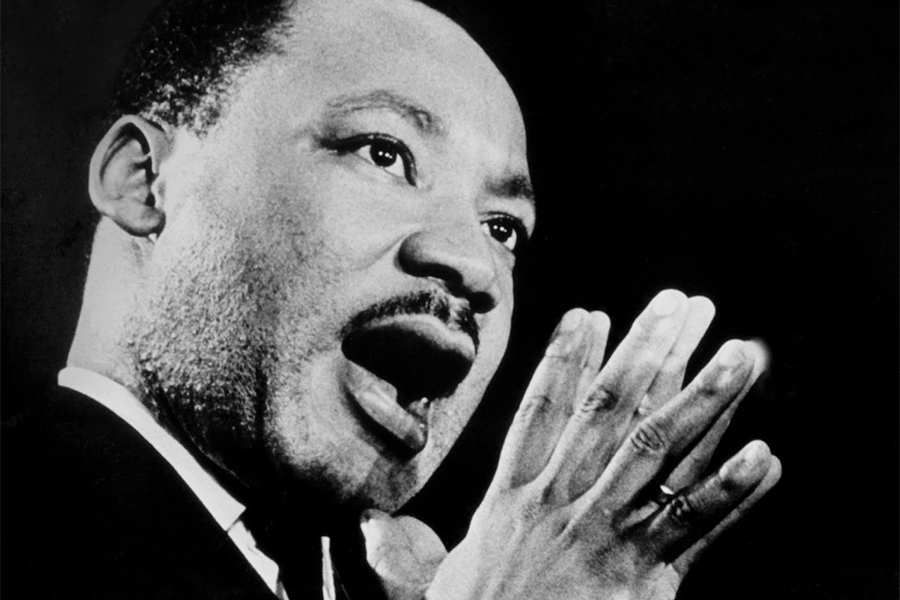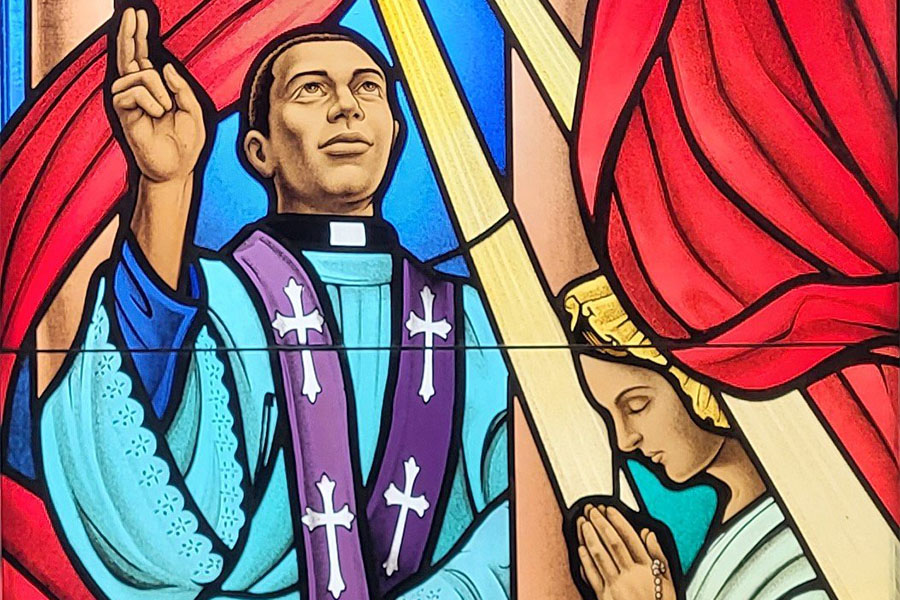Loyola University Maryland officially acknowledged its historical ties to slavery with the Jan. 17 release of a comprehensive 27-page report detailing the Baltimore university’s connections to the slave trade.
The report notes that the connections between slavery and Jesuit higher education first came to national attention in 2016 when a New York Times story detailed the ways Georgetown University in Washington, D.C., benefitted from the proceeds of the 1838 sale of 272 African American men, women and children who were enslaved by the Maryland Province of the Jesuits.
Loyola was among those Catholic institutions of the Maryland Province to benefit from the sale of the slaves, known as the “GU272.”
A 12-member task force, comprising Loyola undergraduate students, faculty, staff and descendants of slaves sold by the Jesuits, found direct financial connections between Loyola’s founding in 1852 and the sale of the 272 enslaved people in 1838.
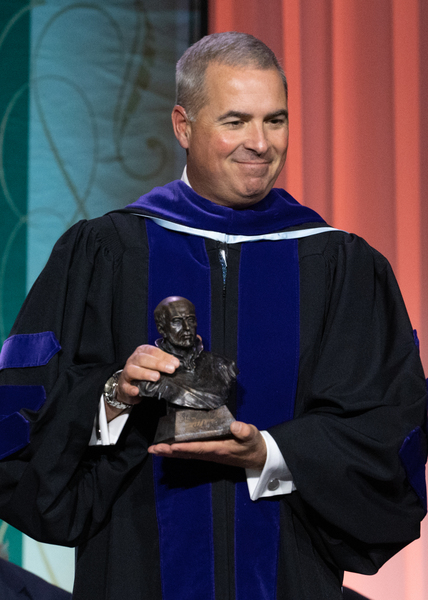
It highlighted instances where Loyola Jesuits rented enslaved individuals between July 1855 and December 1860, indicating that the university was a likely beneficiary of slave labor.
The research uncovered Loyola’s involvement with the Confederacy during the Civil War, with 22 students, faculty or staff joining the Confederate forces. The university hosted prominent Confederate sympathizers associated with the “Lost Cause” ideology in the late 19th century.
When Loyola launched the task force in December 2021, it formally joined Universities Studying Slavery (USS), a consortium of more than 90 institutions examining their ties to slavery, the report said.
Loyola’s president, Terrence Sawyer, convened the formation of the task force when he was the incoming president. He was joined by then-acting President Amanda M. Thomas.
Mélisande Short-Colomb, a research and community engagement associate at Georgetown University, was one of the members of the task force. She is descended from two of the enslaved people sold by the Jesuits. She feels deeply connected to her ancestors through a lineage spanning 12 generations, she said.
“As a product of this rich heritage, I possess a thorough understanding of my identity and family history,” Short-Colomb said, noting the importance of acknowledging the legacy and impact of slavery not only from an institutional but also from a spiritual and moral perspective.
Short-Colomb believes Loyola’s acknowledgment marks a significant step, as it becomes the first Jesuit school after Georgetown to acknowledge publicly its link to the historical slave sale.
Georgetown has taken steps toward reconciliation, including a financial contribution to a foundation aiding descendants of those sold.
Loyola’s task force recommended several tangible ways Loyola can respond to its uncovered history. Just a few of those recommendations include the establishment of a university-wide initiative that continues Loyola’s examination of its connections to slavery and its legacies; engaging in a “comprehensive re-telling of Loyola’s story” and honoring the GU272 ancestors and other individuals whose contributions to Loyola have gone previously unacknowledged or uncelebrated.
The task force recommended renaming Loyola’s Jenkins Hall and the Jenkins Society, both of which are named in honor of George Carrell Jenkins, a Confederate soldier and advocate of the Lost Cause. It also suggested making Loyola accessible to members of the GU272 descendant community and expanding Loyola’s support for existing campus initiatives focused on diversity, equity, inclusion and justice.
According to a statement on Loyola’s website, the university will consider the report’s recommendations as part of the university’s next strategic plan, which it said is positioned for adoption and implementation in Spring 2024.
Lynn Locklear Nehemiah, a retired dentist and active nonprofit worker who serves as vice-chair of the White Marsh Historical Society and is a member of the Loyola task force, underlined the necessity for universities to educate students about the historical impact of slavery in order to build a more empathetic society.
Nehemiah’s family includes her third-great-grandmother, Louisa Mahoney Mason, who was one of the last Jesuit slaves to be freed in 1864.
Nehemiah applauded the university’s commitment to the process and conversation, expressing pride in the collaborative work.
“I think Loyola has taken a very bold step, acknowledging their ties and honoring our ancestors and their contributions,” said Nehemiah, further emphasizing that Loyola has set a good example for other schools. Studying the past benefits all of society and the Catholic community, she said.
“This is really about healing,” she said, “healing the soul of the university, healing the soul of the church and on our part, forgiveness.”
David Carey Jr., Loyola’s Doehler Chair in History, and a task force member, expressed the university’s intention to continue the conversation and collaborate with descendants, especially Black residents in Baltimore.
Carey, a parishioner of St. Ignatius in Baltimore, said Loyola’s research is just the beginning.
“The goal is to open our campus, creating an inclusive environment and working toward racial justice within our own community,” he said.
To further delve into the complexities of Loyola’s history with slavery, Carey said a more detailed 334-page book titled “Untold Truths: Exposing Slavery and Its Legacies at Loyola” is scheduled to be published in April by Loyola-based Apprentice House Press.
Short-Colomb highlighted ongoing efforts toward reparations through initiatives such as the Descendants Truth and Reconciliation Fund (DTRF) and the Thurgood Marshall College Fund (TMCF), which announced the establishment of a scholarship program aimed at supporting descendants of Jesuit and Catholic slaveholding in the United States.
The initiative spans early childhood education through post-secondary education, promoting truth, racial healing and reconciliation in various communities.
Administered by the TMCF, the program provides annual, need-based scholarships of up to $10,000 to eligible descendants for their college expenses.
“In taking ownership of our past,” the Loyola task force report said, “we are asserting that there is no guarantee of a more just future. Instead, we are calling our community to work for it.”
The Archdiocese of Baltimore formed a 17-member commission in 2023 to research its ties to slavery going back hundreds of years.
“This important commission is being formed to continue the archdiocese’s journey to racial justice,” said Archbishop William E. Lori, who has written two pastoral letters on racial justice. “It is essential that we continue to acknowledge the ties to slavery the archdiocese has had in its past and within its foundational history.”
George Matysek Jr. contributed to this story.
Email Adriana Montes at amontes@CatholicReview.org
Read More Racial Justice
Copyright © 2024 Catholic Review Media

